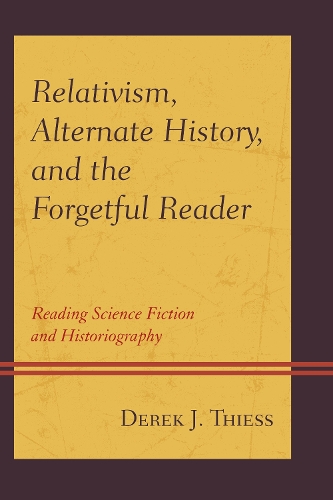
Relativism, Alternate History, and the Forgetful Reader: Reading Science Fiction and Historiography
(Hardback)
Publishing Details
Relativism, Alternate History, and the Forgetful Reader: Reading Science Fiction and Historiography
By (Author) Derek Thiess
Bloomsbury Publishing PLC
Lexington Books
25th November 2014
United States
Classifications
Professional and Scholarly
Non Fiction
809.38762
Physical Properties
Hardback
184
Width 169mm, Height 247mm, Spine 19mm
431g
Description
The writer of alternate history asks what if What if one historical event were different, what would the world look like today In a similar way, the postmodern philosopher of history suggests that history is literature, or that if we read certain historical details differently we would get a distinctly different interpretation of past events. While the science fiction alternate history means to illuminate the past, to increase our understanding of past events, however, the postmodern approach to history typically suggests that such understanding is impossible. To the postmodern philosopher, history is like literature in that it does not offer the reader access to the past, but only an interesting story. Building on criticism that suggests personal psychological reasons for this obscuring the past, and using a literary theory of readership, this book challenges the postmodern approach to history. It channels the speculative power of science fiction to read the works of postmodern philosophy of history as alternate histories themselves, and to map the limits and pathology of their forgetful reading of the past.
Reviews
Relativism, Alternate History, and the Forgetful Reader is timely, original, and essential reading for anyone interested in the fascinating relationship between science fiction and historiography. It combines theoretical sophistication with a detailed knowledge of the relevant texts. I expect it to have a major impact on all subsequent scholarship in the field. -- Clayton Koelb, University of North Carolina
Author Bio
Derek Thiess teaches in the department of English at Georgia Gwinnet College.
